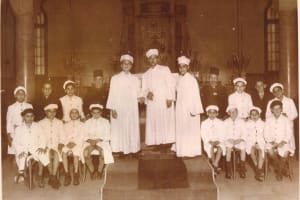Take a tour inside Egypt’s $1 billion museum with THE ROSENBERG REPORT
‘Fantastic and extraordinary’ – Joel Rosenberg returns from the world’s largest archaeological museum and urges others to visit
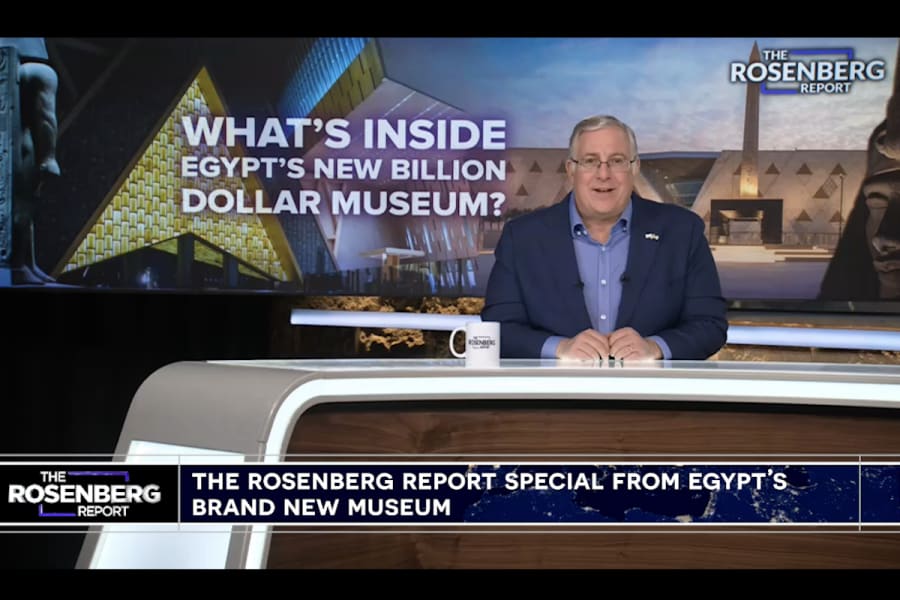
Did you know Egypt is mentioned in the Bible more than nearly any other nation except Israel?
Did you know Egypt is now home to the world’s largest archaeological museum dedicated to a single civilization?
In the latest episode of THE ROSENBERG REPORT on TBN, host and ALL ISRAEL NEWS Editor-in-Chief Joel Rosenberg encouraged viewers to consider Egypt as a travel destination.
“I want you to go not only to Israel, but I want you to start praying about going to Egypt,” Rosenberg said. “It’s a fascinating country. It's a biblical country. And this museum is fantastic.”
The Grand Egyptian Museum is a $1 billion project covering over 5 million square feet. Located just outside Cairo near the iconic pyramids of Giza, it houses more than 100,000 artifacts. Among the highlights are the golden treasures of King Tutankhamun and a colossal statue of Ramses II – arguably the most famous pharaoh in Egyptian history.
“It is an amazing museum. Almost nobody has been there. They were planning to have the grand opening, but they delayed it several times,” Rosenberg said, citing the Oct. 7, 2023, war in the region as one of the causes for the postponement.
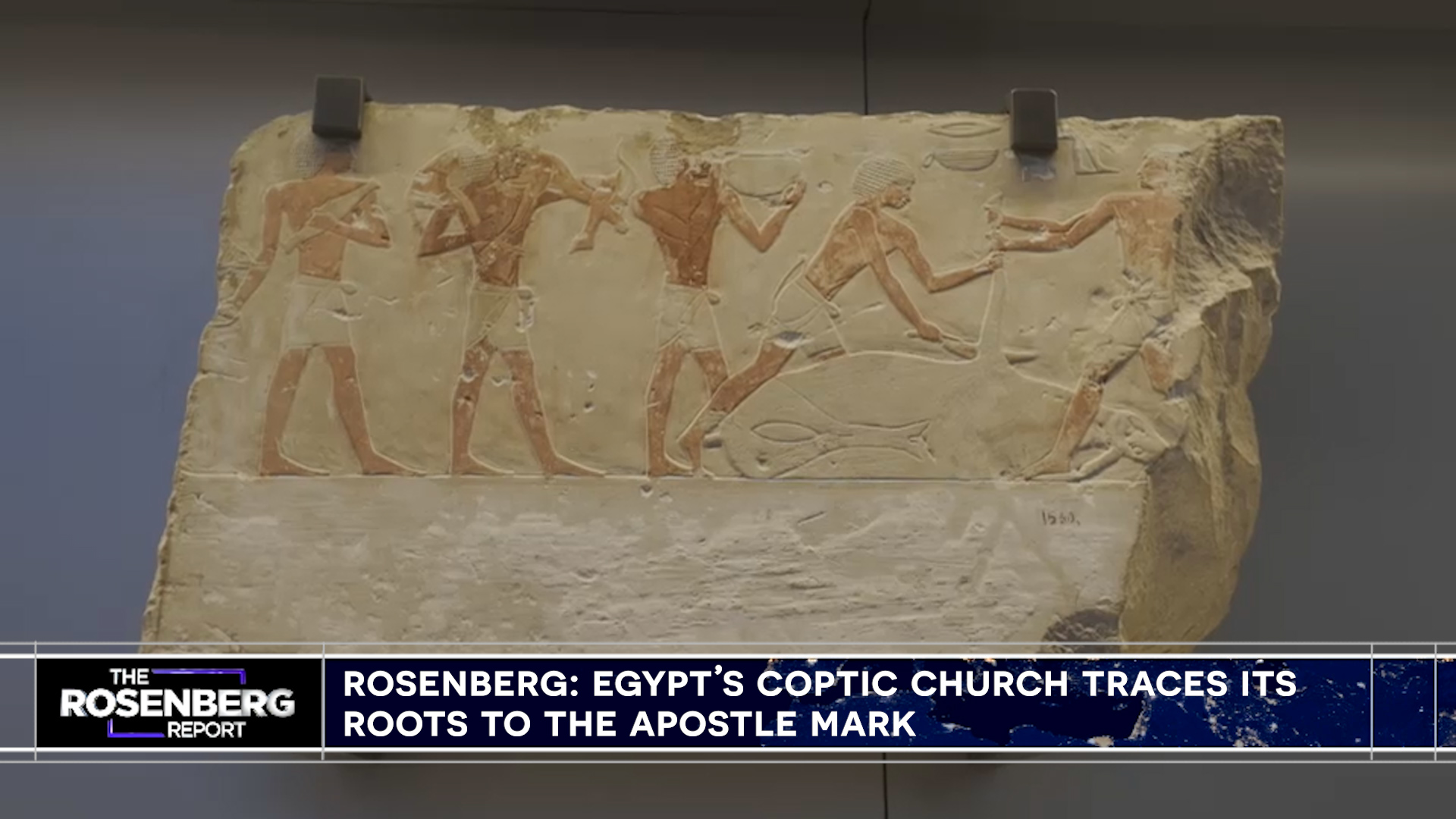
But what’s a short delay when the museum showcases over 4,000 years of history?
Rosenberg described the museum as the culmination of decades of planning and design. The concept of a mega-museum originated in the early 1990s through discussions within the Egyptian government.
“What’s interesting is that more than 1,500 international and Egyptian architectural firms were allowed to submit designs, and over 2,000 designs were submitted,” he explained.
The winning bid was submitted by a small architectural firm with just four members. Initially based in New York, the firm later relocated to Dublin.
“Their submitted design really wowed the Egyptian leadership, and they decided to award this enormous contract –this historic contract – to this little firm,” Rosenberg said.
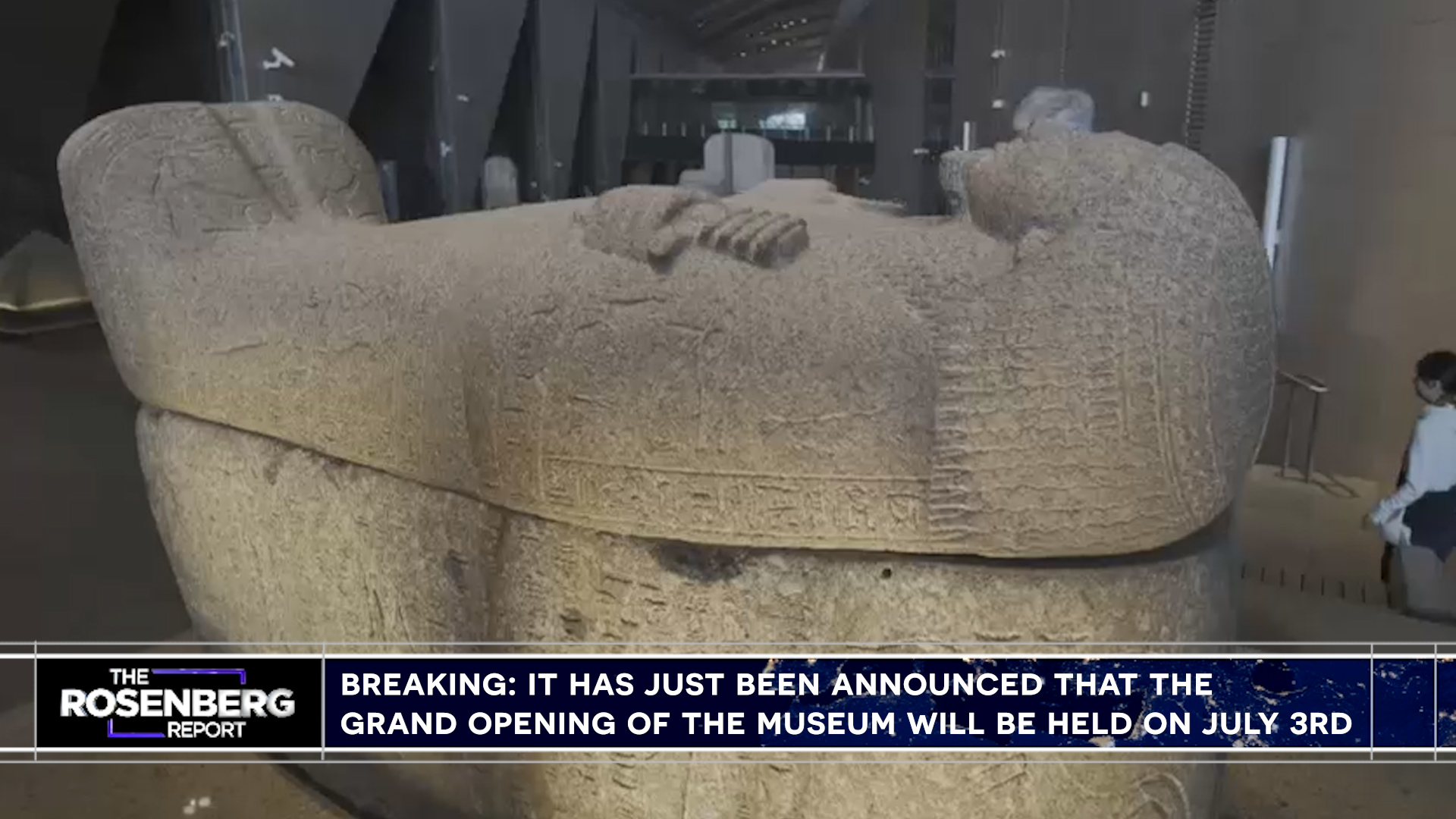
But their mission went beyond building a tourist attraction. The museum was designed to take visitors on a physical, emotional, and sensory journey through Egyptian history.
As visitors ascend the six-story museum, Rosenberg noted, they are introduced to the ancient leaders of Egypt – the pharaohs. As they climb higher, they learn more about Egyptian society and the people’s belief systems.
“It’s sort of taking you up to eternity,” he said while standing on a moving escalator.
“Further up, we’re going to find mummies. We’re going to find the burial practices of the Egyptians, who believed in an afterlife. They believed that the treasures put in the tombs of the pharaohs would be part of their treasures in eternity.”
One story that’s notably absent from the museum is the history of the Hebrew people, who were enslaved in Egypt for over 400 years.
“That is a story that isn’t going to get told here,” Rosenberg pointed out. “In fact, it’s not even written in the archives of Egyptian hieroglyphics. There simply is no Egyptian written evidence, description, of the slavery of the Israelite Hebrew people or the drama of what we read about in the scriptures in the book of Exodus.”
“Why? Well, because which Egyptian leader is going to write about the devastation by the God of Israel – of the Egyptian society and its leadership – and the ten plagues and so forth.”
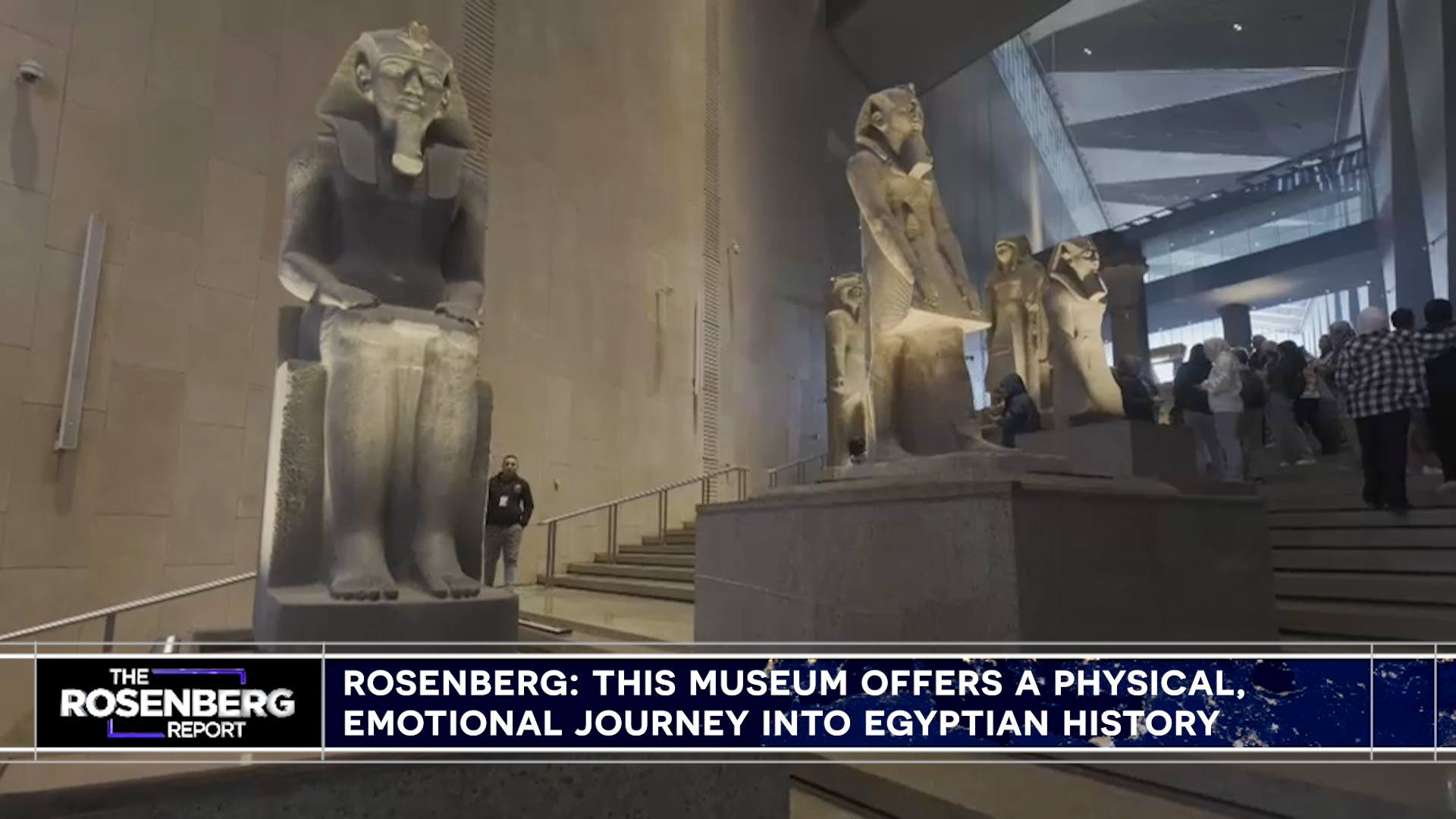
However, Egypt’s Christian history is featured on the tour.
“One of the most fascinating things that we learned from our guide was that if you think of the early centuries of Egypt—after the birth, death and resurrection of Jesus Christ – the apostle Mark came to Egypt. He preached the Gospel, and his disciples preached the Gospel,” Rosenberg shared.
That early missionary work left a powerful impact – before the rise of Islam – and resulted in a time when most Egyptians were followers of Jesus Christ. That is the story of how the Coptic Orthodox Egyptian Church was formed. Nowadays, it constitutes more than 15 million members.
“In the seventh century, as the Arabs moved from the Arabian Peninsula, from Mecca and Medina, and spread all over the Middle East and North Africa and Central Asia, Egypt became a center of being conquered by the forces of Mohammed. And eventually most Egyptians became Muslims,” Rosenberg explained.
“This museum sort of navigates that history, but also the pre-Christian, pre-Islamic history that goes back to the times of the Pharaohs. That is so beautifully done here,” he added.
“I have to say, I am in love with this museum – and not even all sections are open yet.”
The much-anticipated grand opening of the Grand Egyptian Museum is expected in mid-summer 2025. Egyptian authorities hope the museum will draw as many as five million visitors annually.
Rosenberg himself is a returning visitor. He once lived there for three months with his family while writing a book in 2005, and he has travelled back numerous times, often leading Christian Evangelical delegations to meet with President Abdel Fattah el-Sisi.
“I love Egypt, because God loves Egypt,” Rosenberg said, naming many biblical figures who lived there: Moses, the prophet Jeremiah, Joseph, Jesus, Mary, and the entire nation of Israel.
“It dominates so much of the Bible, and yet there’s so much mystery and intrigue and artifacts that have been dug up – and most of us don’t know much about it. Very few of us have ever been to Egypt,” he noted.
Join Joel Rosenberg for a sneak preview tour of the Grand Egyptian Museum on the TBN website.
THE ROSENBERG REPORT airs Thursday nights at 9 p.m. EST and Saturday nights at 10 p.m. EST on the Trinity Broadcasting Network (TBN), the most-watched Christian television network in the United States.

The All Israel News Staff is a team of journalists in Israel.
You might also like to read this:



